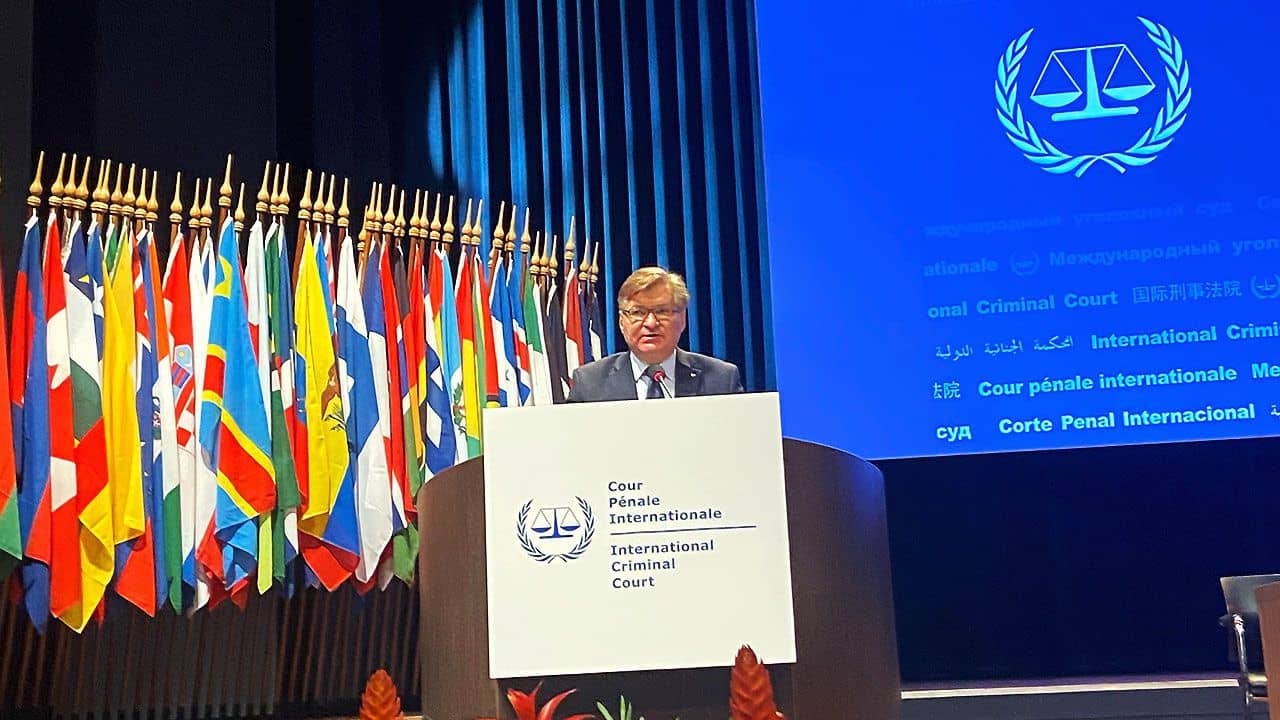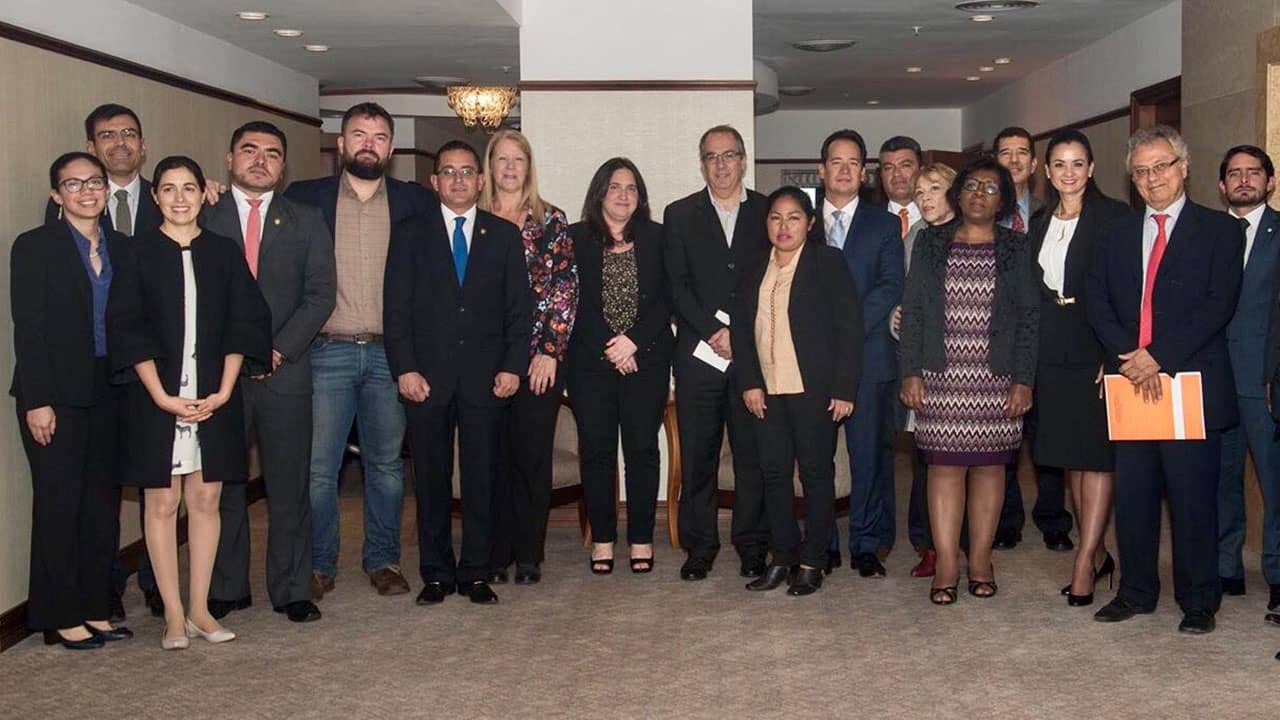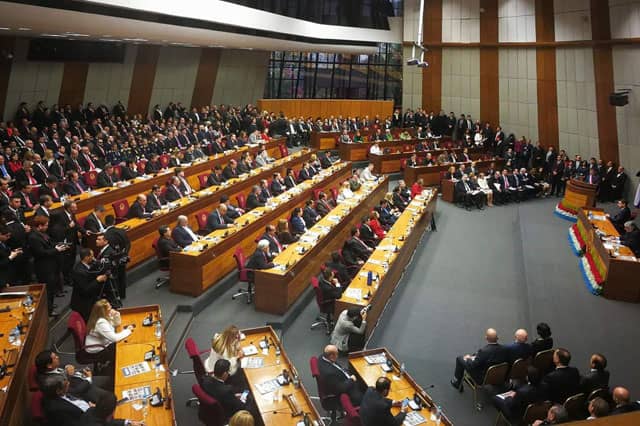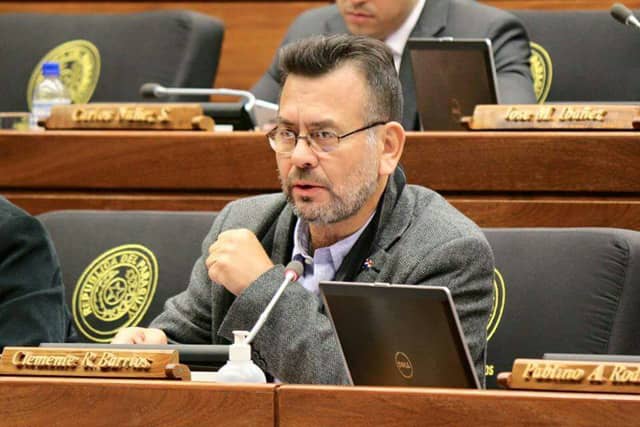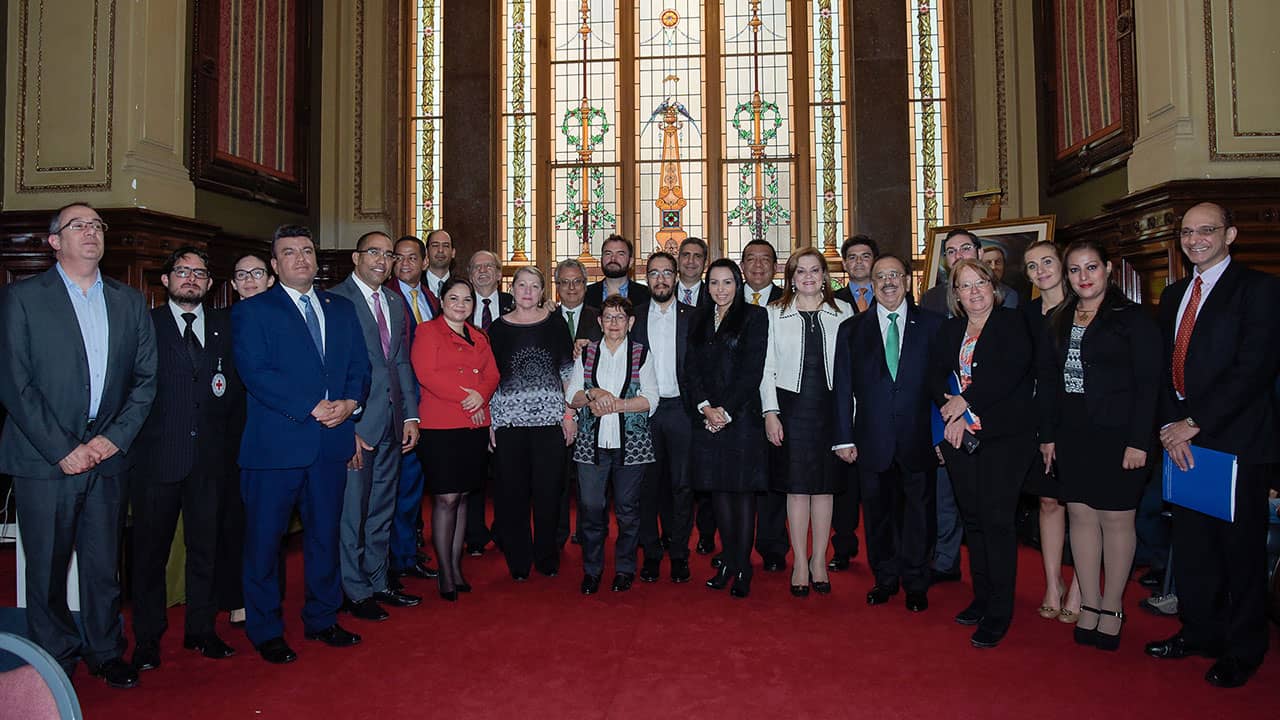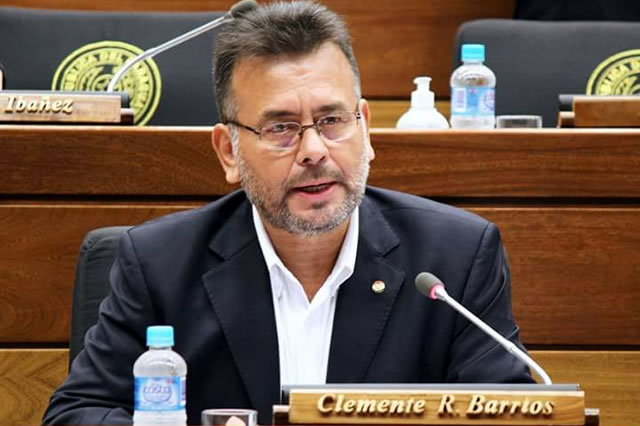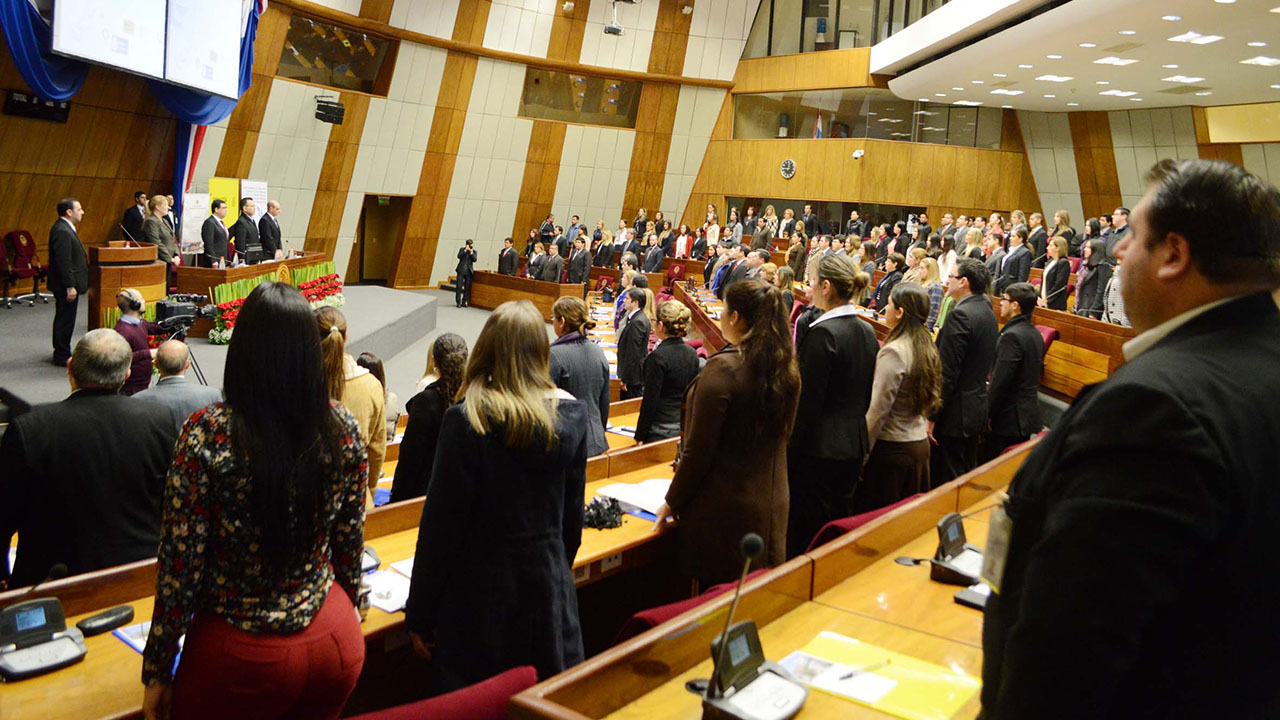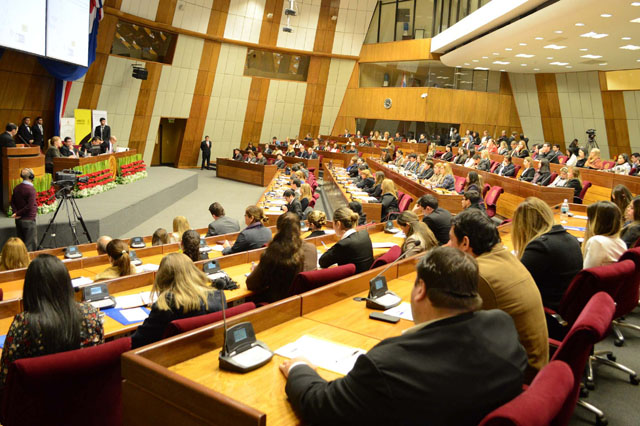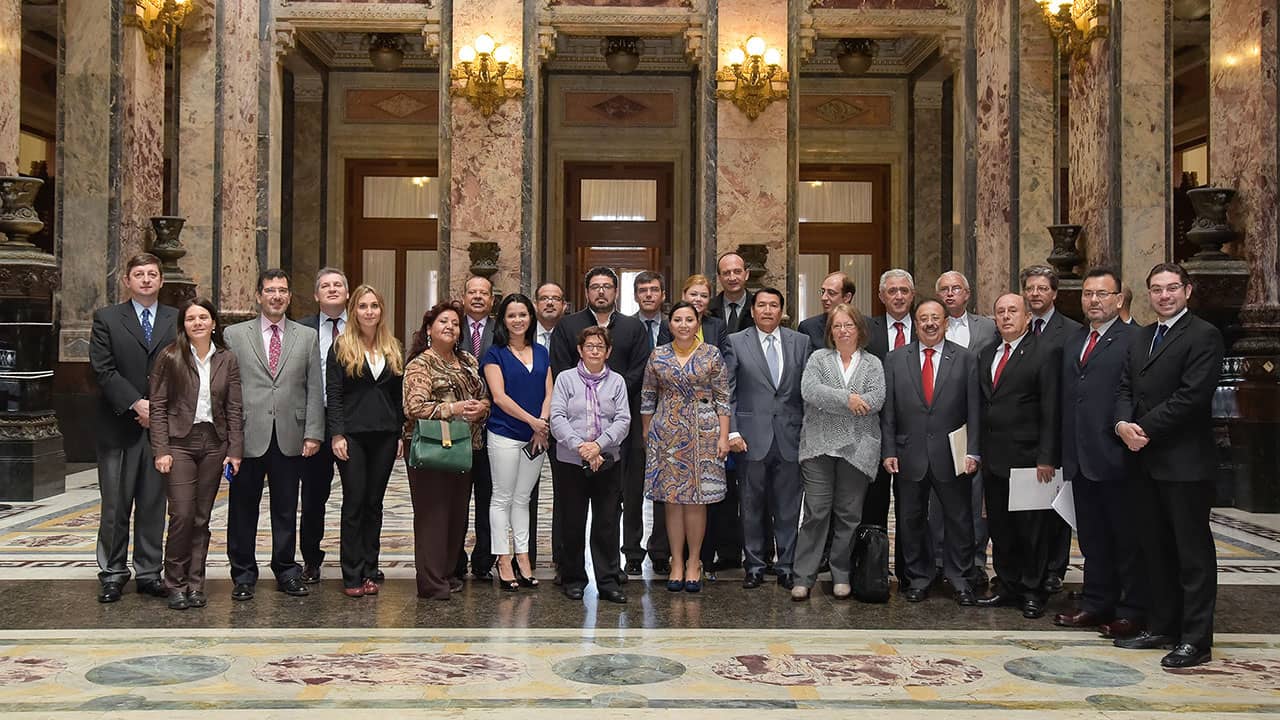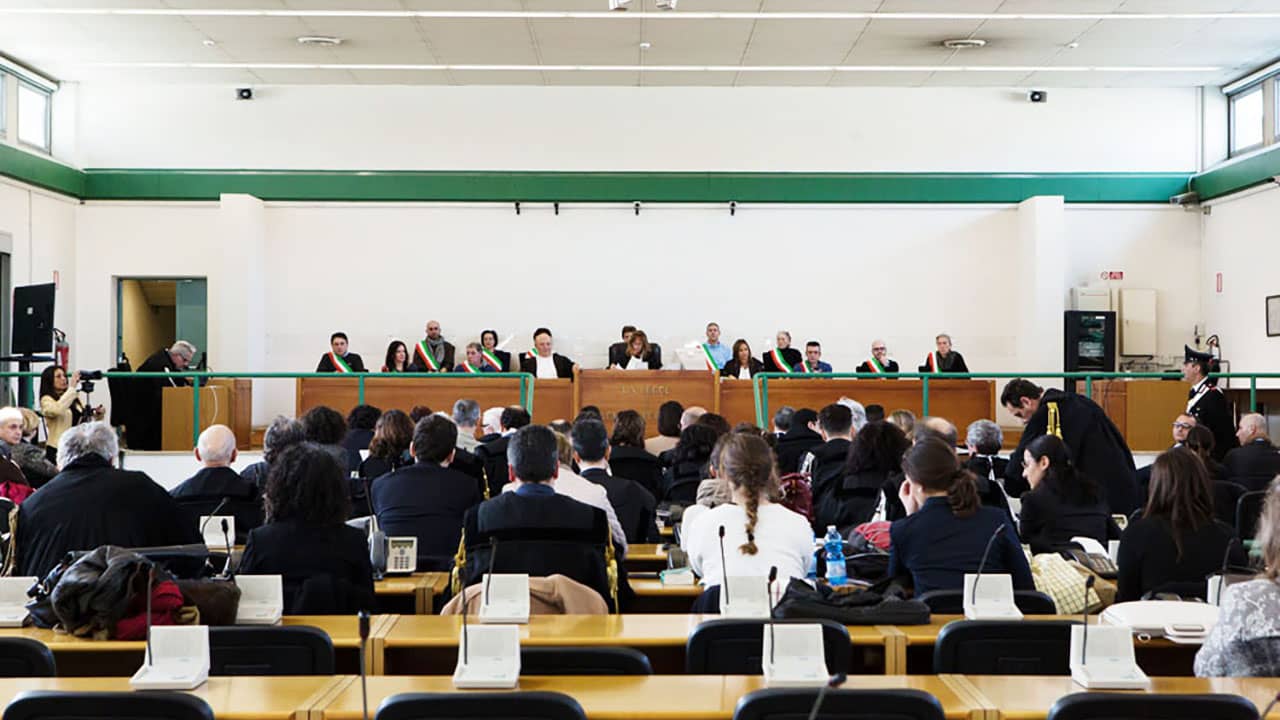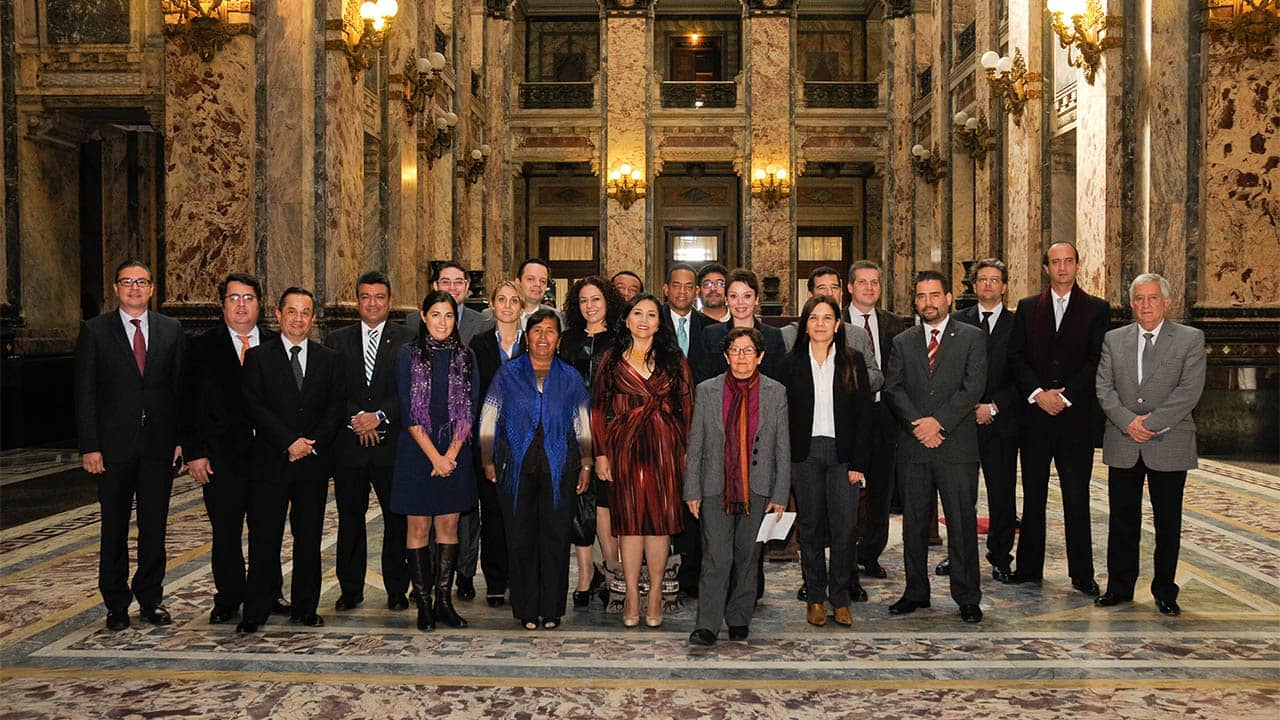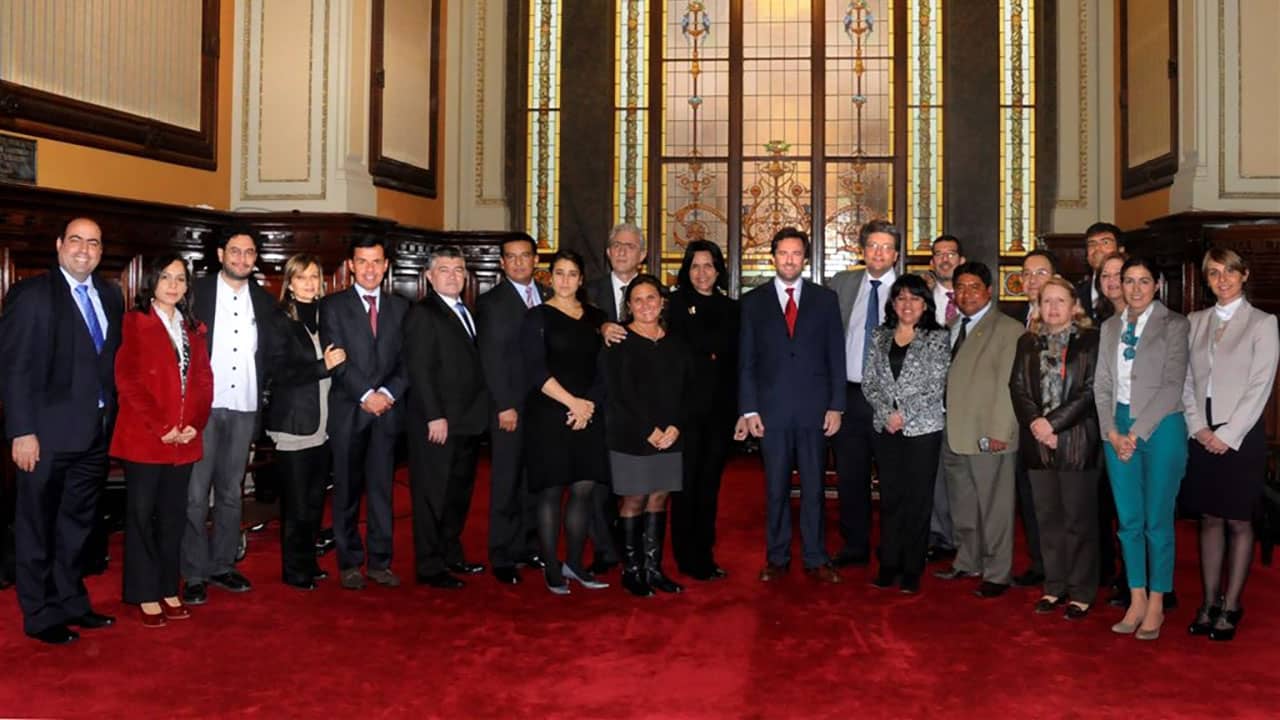PGA has been working with Paraguayan Legislators since the year 2000, when the leading PGA Senator from Paraguay played a pro-active role in the process that led to assess the constitutional compatibility of the Rome Statute and its ratification. PGA continues to work with Members of Parliament in Paraguay.
Rome Statute
Paraguay signed the Rome Statute on 7 October 1998 and deposited its instrument of ratification on 14 May 2001.
Kampala Amendments of 2010
After a delegation of Paraguay attended the Review Conference and joined the consensus to adopt the Kampala Amendments, in August 2013 the Government of Paraguay sent a Bill to the Chamber of Deputies to consider the ratification of the Kampala Amendments.
Status on the domestic implementation of the Rome Statute
The Ministry of Foreign Affairs of Paraguay drafted a Bill for the implementation of the Rome Statute, including cooperation and complementarity issues in December 2012. The bill is now under consideration in the Legislation Committee of the Senate of Paraguay.
For more information click here. (in Spanish).
Agreement on Privileges and Immunities of the Court (APIC)
Paraguay signed the APIC on 11 February 2004 and ratified it on 19 July 2005.
ICC Process and PGA Action
In 2009, the Ministry of Foreign Affairs announced that it was drafting a Bill to implement the Rome Statute. After some years, in 2011 PGA members together with civil society requested the government to table the bill to parliament, act that took place in 2012.
Since that moment, the bill has been under discussion in the Legislation Committee. PGA, together with other organizations from civil society sent a comment on the bill requesting the inclusion of some elements to allow the full implementation of the Rome Statute into the national legislation. PGA member, Senator Fernando Siva Facetti, thanked them and included most of the points in his statements and request for additions and deletions in the committee discussions.
In October 2000, Members of the Parliament of Paraguay joined the Campaign for the Rome Statute of the ICC on the occasion of the Latin American Parliamentary Conference on the Ratification and Implementation of the Rome Statute hosted by the Senate of Argentina in Buenos Aires. Senator José Félix Fernández Estigarribia, Vice-President of the Foreign Relations Committee and member of PGA highlighted the reason why Paraguay had to join the Rome Statute system, namely: The interest of a small country like Paraguay to reinforce its sovereignty through its participation in international institutions intended to defend principles of human rights and the Rule of Law, which are the foundation of the Paraguayan National legal order itself. The PGA Buenos Aires Conference welcomed the transmission of the ICC Statute to Parliament by Paraguayan President Gonzales Macchi and the consequent unanimous approval in the Foreign Relations Committee, in which Sen. Estigarribia played a crucial role as “Miembro Informante” on the Court. As the ICC ratification bill was pending – as of October 2000 – before the Senate’s Constitutional Affairs and the Legislation Committees, where some Constitutional compatibility questions had been posed, the PGA Conference called for a prompt resolution of these challenges on the basis of the PGA Conference-paper presented by Prof. Dr. Felix Lavinia (MP, Uruguay). In light of the principles supporting international co-operation and universal human rights contained in articles 143, 145 et alia of the National Constitution, the Conference agreed that the ICC Statute should be considered fully in accordance with the Paraguayan legal system. It was therefore recommended that the Senate Commissions and Plenary could approve the ICC ratification bill by mid-December 2000, when the Congress would have started its summer recess.
The consistent advocacy action of Senator José Félix Fernández Estigarribia contributed to accomplish this pivotal result.
Organization of American States
As a member of the Organization of American States, Paraguay has supported the promotion of the International Criminal Court through the adoption of an annual resolution by the General Assembly of the OAS, as well as by the holding of an annual working meeting of high level within the Political and Juridical Affairs Committee of the OAS. PGA members have been invited at numerous occasions to this meeting. For more information on the work of PGA within the OAS, click here.
Human Rights Council Universal Periodic Review
Paraguay will be reviewed in the 24th session of the UPR in 2016. It accepted the 2011 recommendation of Australia to implement the Rome Statute.

